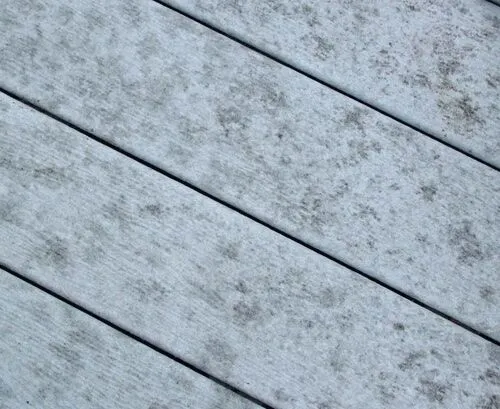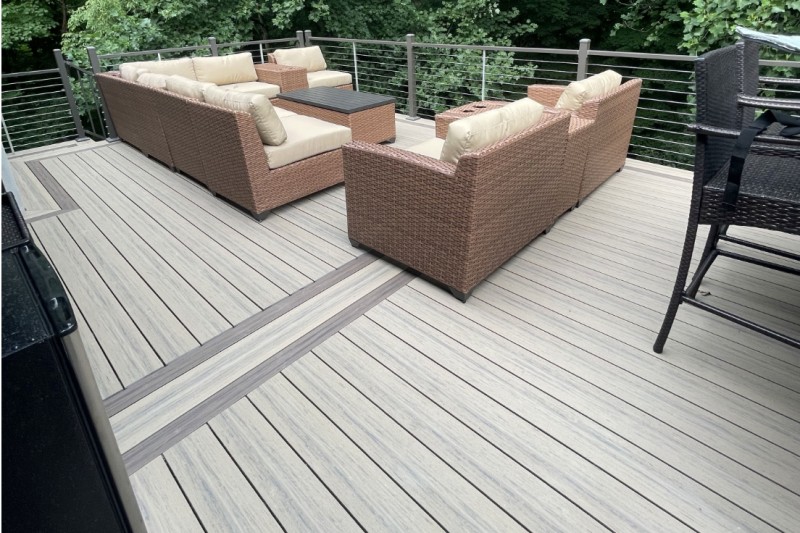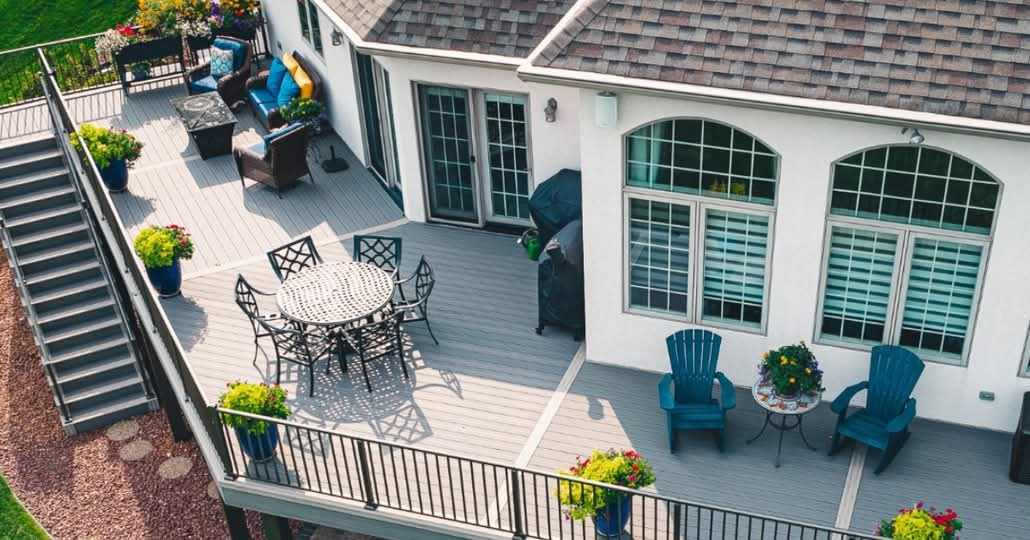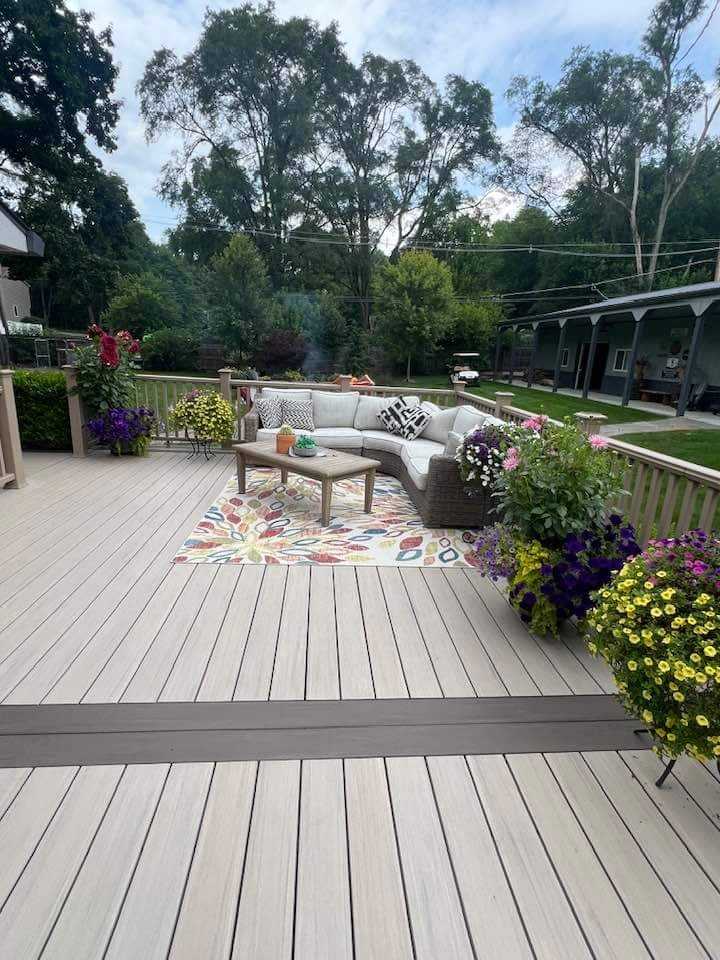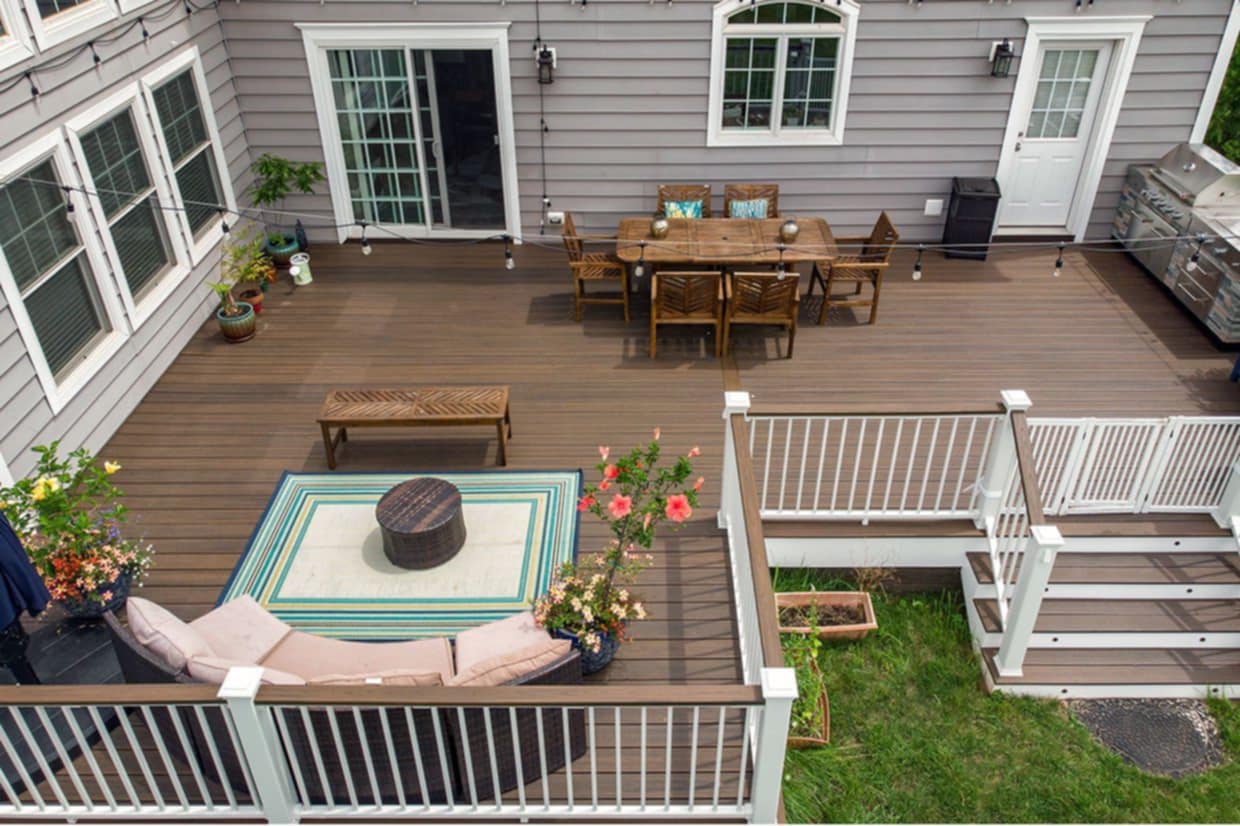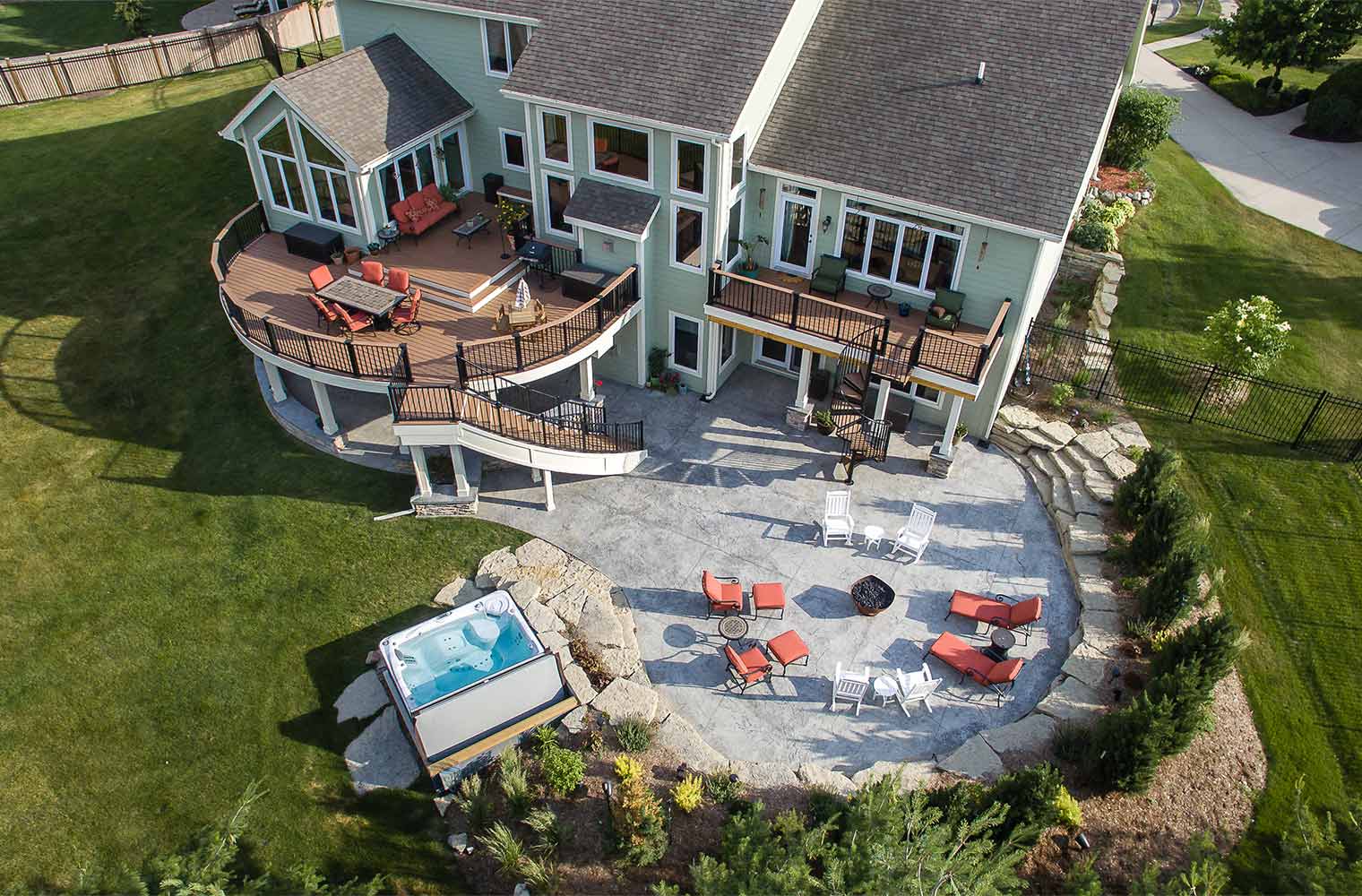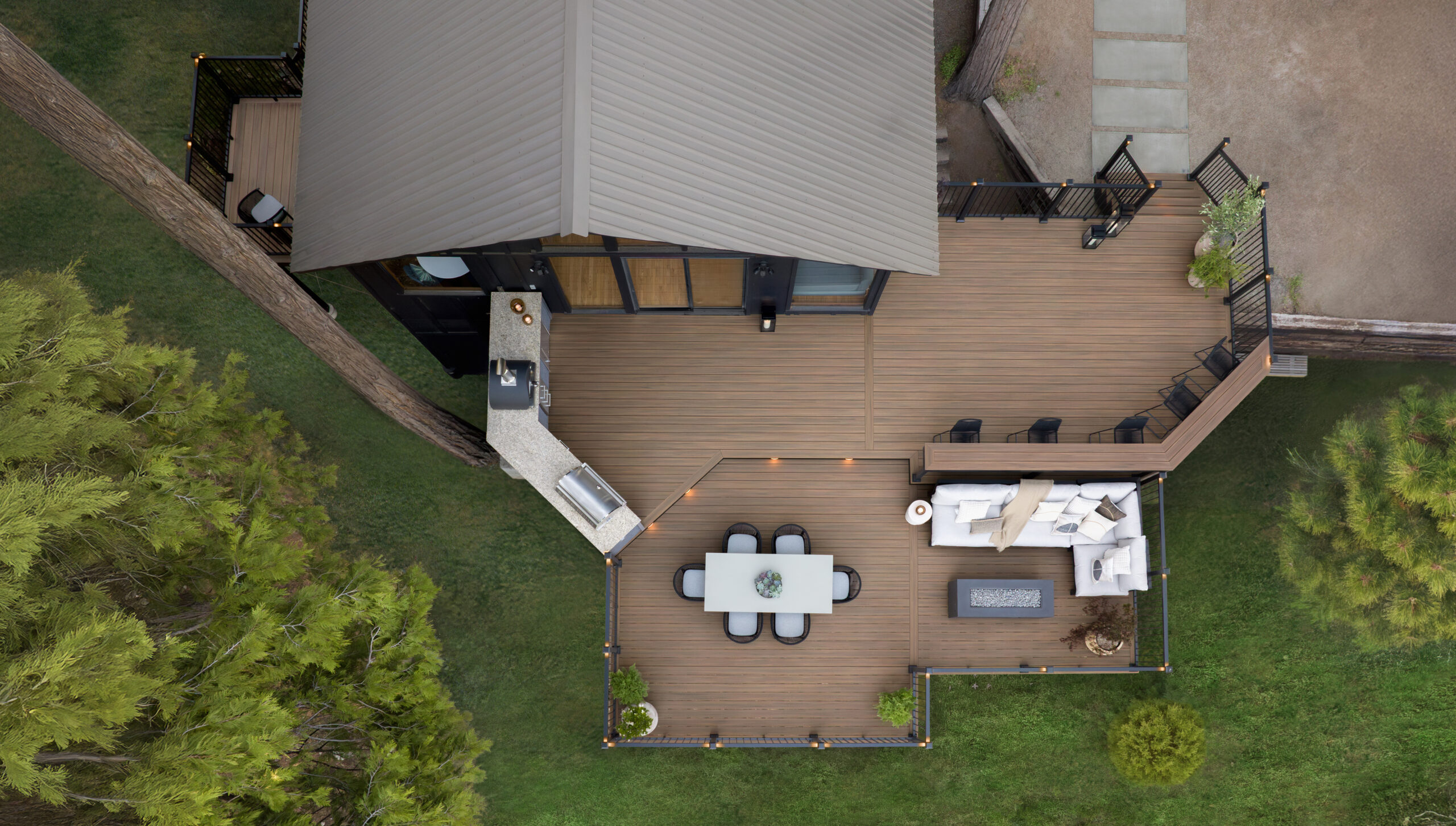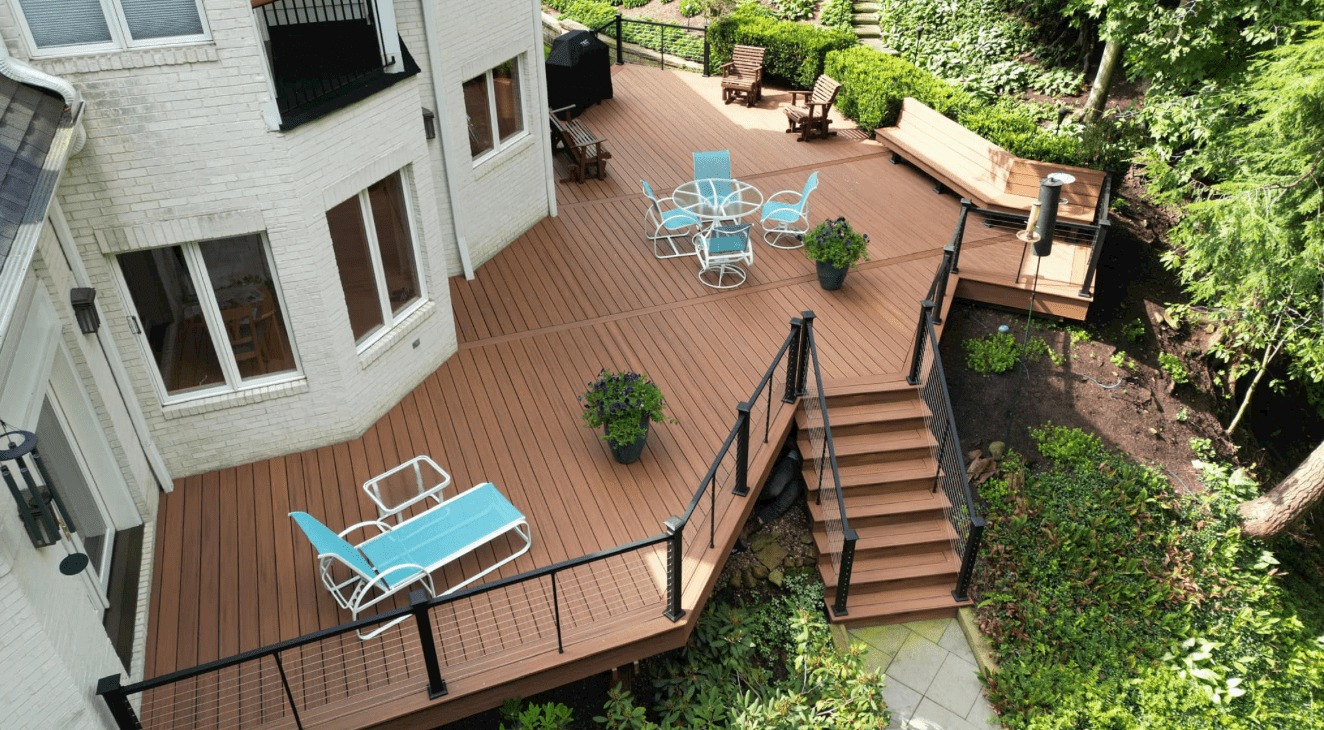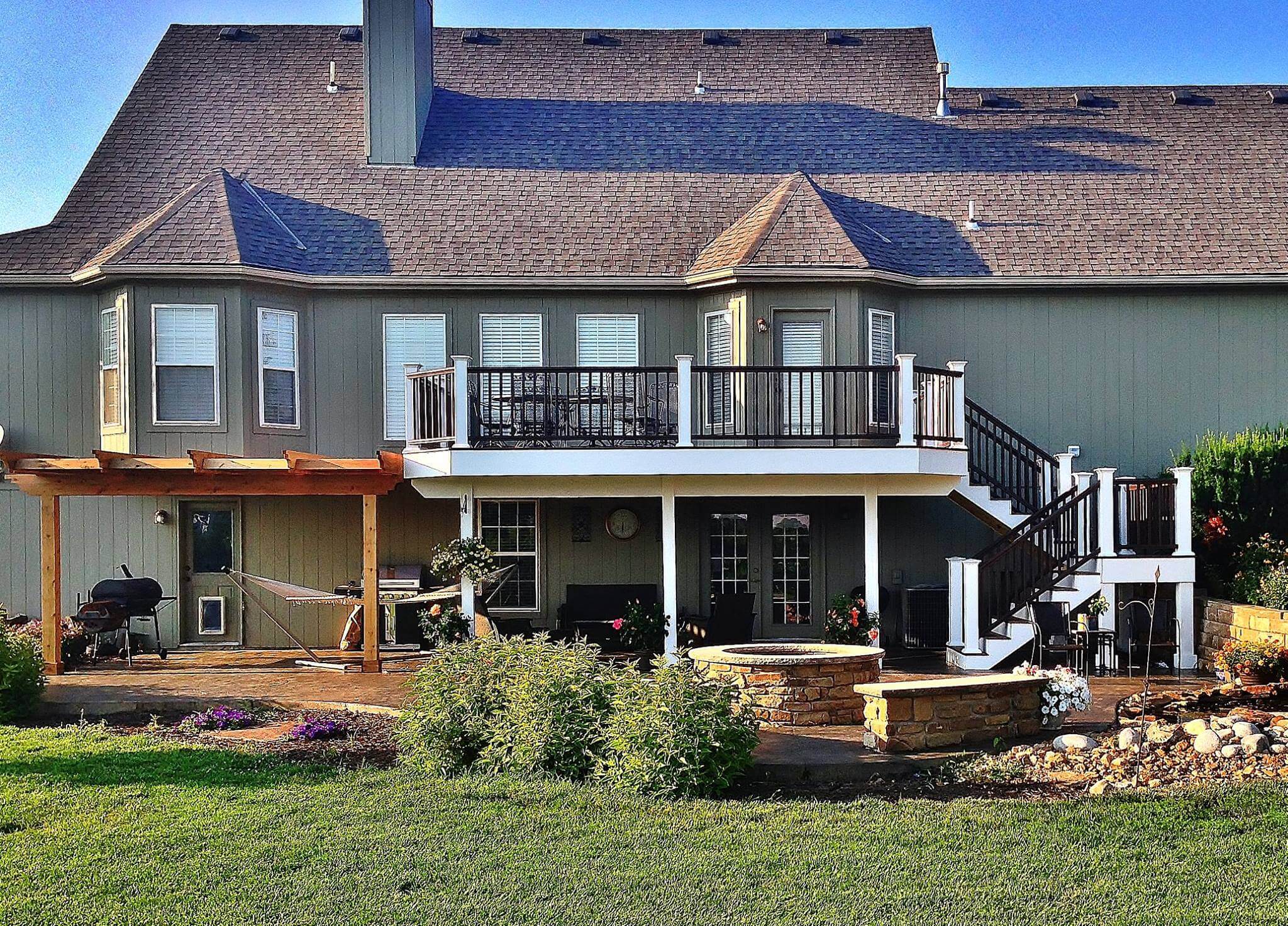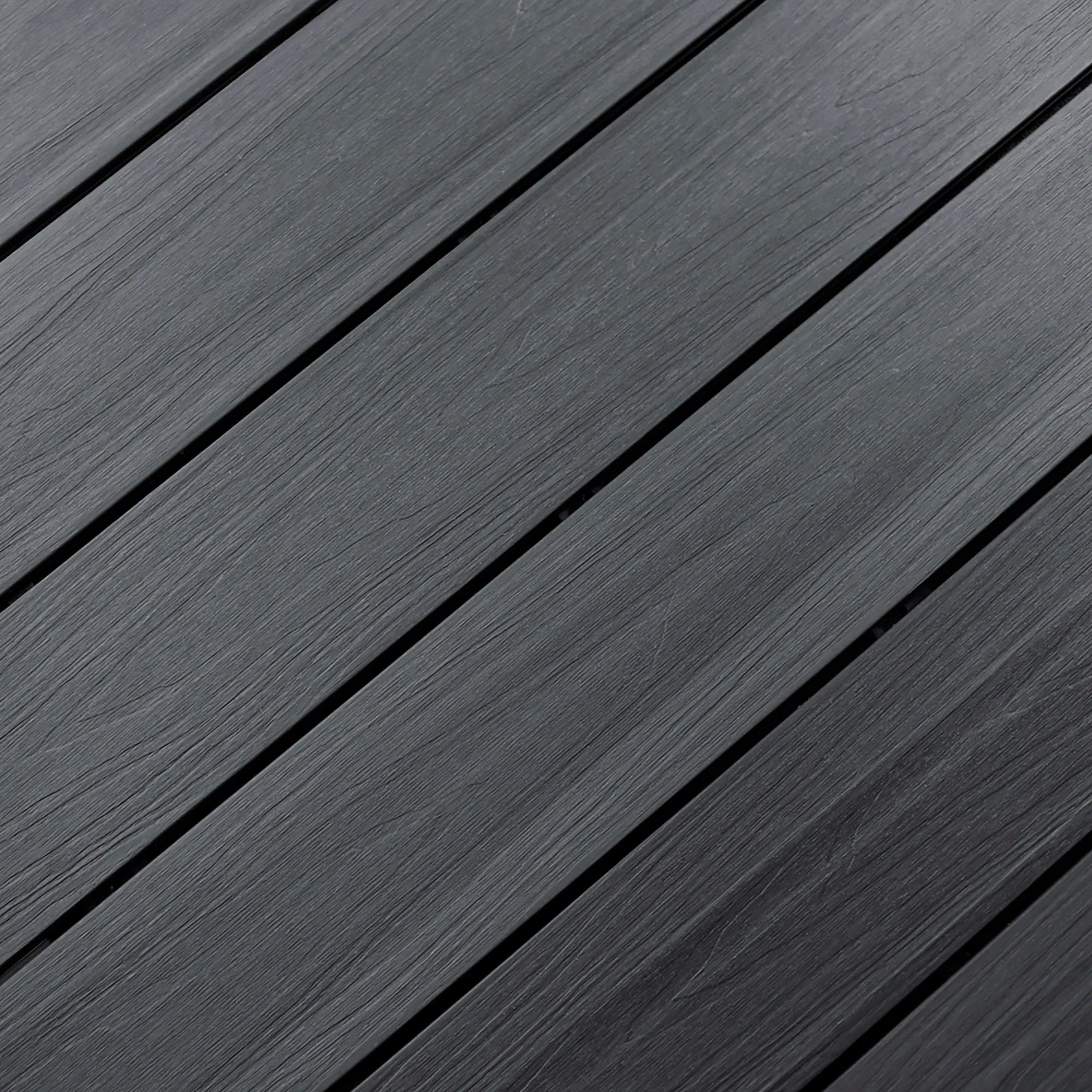If you’ve ever searched for composite decking, you’ve likely come across the name Trex. In fact, many homeowners use the word Trex to describe all composite decking similar to how people say Kleenex for tissues or Band-Aid for bandages. This reputation comes from Trex’s massive marketing reach and availability in nearly every home improvement store across the country.
But just because a name is well-known doesn’t mean it’s the greatest product. Deck builders across the country have stopped using Trex during the past ten years because of problems with the product, problems with the warranty, and problems with how well it works.
Decked Out Builders does not put on Trex decking. Instead, we focus on materials that will last a long time, come with better warranties, and are proved to be durable in the Midwest environment.
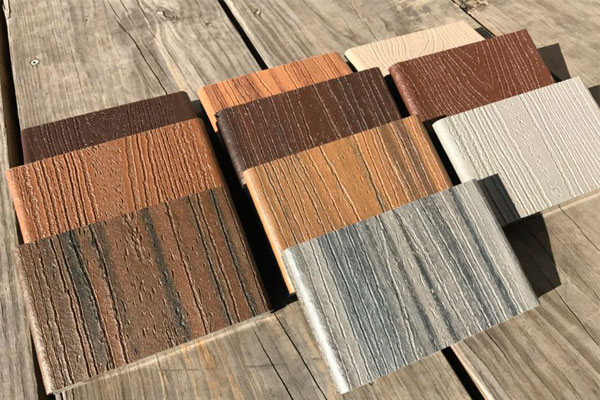
Why Trex Became Synonymous With Composite Decking
Trex launched in the 1990s and was the first company to successfully manufacture composite decking made from recycled plastic and wood fibers. The concept was simple: a low-maintenance alternative to traditional wood that would resist rot, insects, and fading.
Because Trex entered the market early, it quickly became the face of composite decking. Big box stores like Home Depot and Lowe’s stocked it nationwide, and marketing campaigns made it the go-to name for homeowners. Over time, “Trex” became a generic term used to describe any composite material, even when other brands offered completely different technology.
However, while Trex introduced the idea, newer manufacturers improved on it.
Why Trex Is No Longer the Industry Standard
For a long time, builders had to use Trex because there weren’t any other options. That isn’t true anymore. TimberTech, Eva Last, Fiberon, and Deckorators are now the best brands in the business. They use better materials, don’t fade as easily, have better traction, and provide better warranties.
Many professional builders stopped installing Trex because of:
- Product performance issues: Trex lines are prone to surface fading, scratching, and mold buildup, especially in shaded or damp conditions.
- Board movement: The wood fiber content in Trex’s composite core expands and contracts more than PVC decking. This creates gapping and seam separation in climates like Illinois where freeze-thaw cycles are constant.
- Limited warranty support: Trex’s warranties often exclude labor costs and have been criticized for slow claim responses and even multiple denials. Builders prefer brands that stand behind their products with both material and labor coverage.
- Poor quality: Trex’s capping has been complained to leave water spot stains, white residue from heat, swelling and cracking, skimping on material thickness causing easy cracking.
- Heat Absorption: Trex’s decking is one of the most heat absorbed composite decking giving the ultimate complaint from homeowners of how hot it gets, even when using the lighter colors.
Because of these ongoing concerns, many builders view Trex as an entry-level, retail-grade product better suited for DIY projects than professional outdoor living installations.
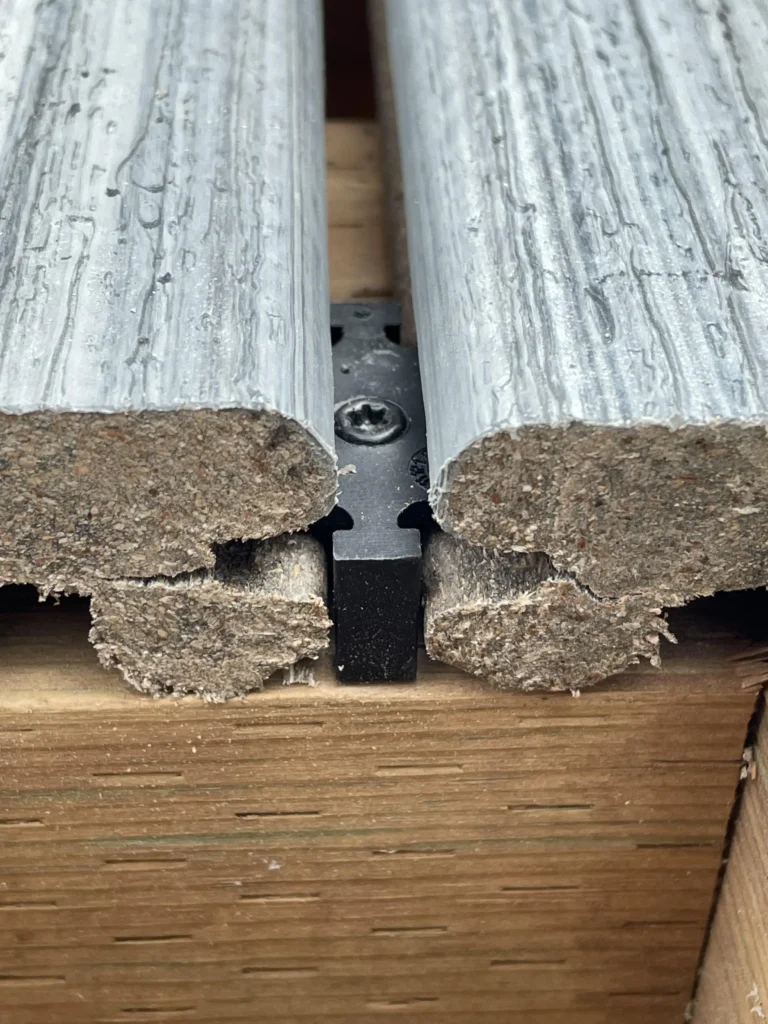
A History of Class Action Lawsuits
Trex’s public legal history is one of the main reasons professionals have shifted away from the brand.
- In 2010, a class action lawsuit was settled after homeowners reported surface flaking and deterioration on Trex’s early-generation boards.
- In 2013, another class action lawsuit was filed over claims of mold growth, discoloration, and premature failure.
- While Trex replaced many affected boards, both lawsuits damaged the brand’s credibility and exposed weaknesses in quality control.
Trex has since introduced updated product lines with better capping, but the damage to trust among builders remains. Many professionals who experienced these issues firsthand prefer not to risk using Trex again especially when better-performing alternatives exist.
Why Builders Choose Alternatives Over Trex
Builders prioritize longevity, consistency, and warranty support. When a product fails, it reflects on their workmanship even when the issue is material-related.
Deckorators, Fiberon, Eva Last and TimberTech have earned far stronger reputations among builders for those reasons.
- Deckorators Voyage line use mineral-based composite technology that contains no wood fibers. These boards have nearly zero water absorption, high slip resistance, and superior dimensional stability. They come with a 50-year structural warranty and a 25-year fade and stain warranty that includes labor in many cases.
- TimberTech Advanced PVC is made from solid PVC, not wood or filler. It resists moisture completely, stays cooler in the sun, and offers fade protection up to 50 years. The boards maintain a realistic wood look and tight seams through seasonal movement.
These brands outperform Trex in the areas that matter most to both homeowners and professionals: durability, consistency, and support.
The Warranty Problem
Trex’s guarantee lasts between 25 and 50 years, depending on the line, but many builders and consumers say they have trouble getting their claims approved. A lot of claims are turned down, and even the ones that are approved usually don’t cover the expense of labor for taking things out and putting them back in.
TimberTech and Deckorators, on the other hand, have clearer warranty policies and excellent customer service. People who have worked with these companies say that their warranty departments are quick to respond and that they provide fair time frames for resolving issues.
A strong warranty is only as good as the company behind it. That is why professionals who build their reputations on craftsmanship avoid materials with a history of disputes or vague coverage.
Trex as a Retail Product, Not a Professional Standard
One of Trex’s biggest advantages is availability. It’s sold almost everywhere, which makes it appealing for DIY homeowners looking for an easy-to-purchase option. But that accessibility comes at a cost.
Mass retail means less quality control during shipping and storage. Boards can warp when stored improperly, and staff in big box stores often lack the specialized knowledge to guide buyers on ventilation, spacing, or fastening.
Professional deck builders source materials directly from certified suppliers who maintain proper storage and distribution standards. These materials are designed for structural decks built to last decades not quick weekend projects.
What We Recommend Instead
At Decked Out Builders, we do not install Trex decking. Our focus is on premium composite and PVC materials that perform better, last longer, and maintain their beauty with minimal maintenance.
We recommend and install:
- Deckorators Voyage for top-tier stability, slip resistance, and moisture protection.
- TimberTech Advanced PVC and Composite lines for realistic wood aesthetics, cooler surface temperatures, and industry-leading fade and stain warranties.
- Fiberonhas a wide range of entry-level to PVC lines that look like real wood and come in a wide range of colors.
- Eva Last for a long time and protect against dampness, manufactured of bamboo
These brands give homeowners the low-maintenance benefits Trex promises but with higher quality materials and proven long-term results.
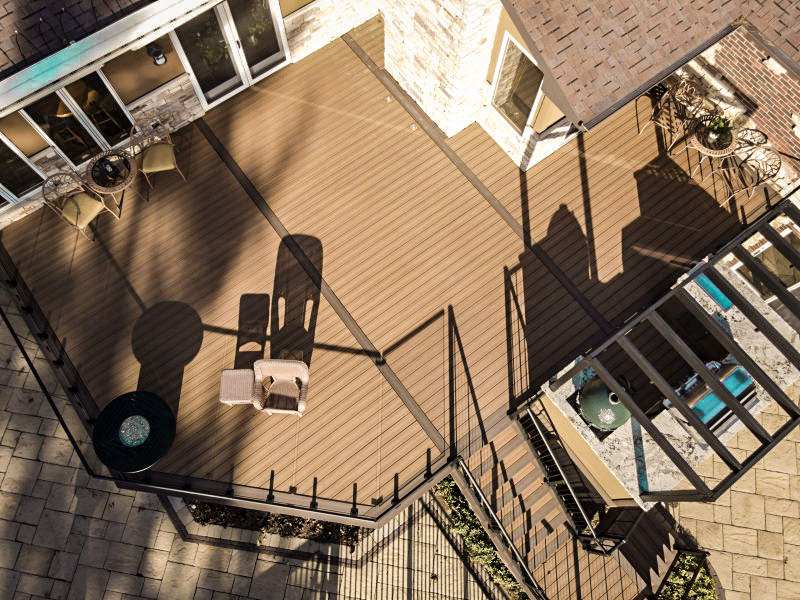
Final Thoughts
Trex is a brand most homeowners recognize, but name recognition does not equal quality. It helped start the composite decking industry, yet it has struggled to maintain performance standards that meet modern expectations


